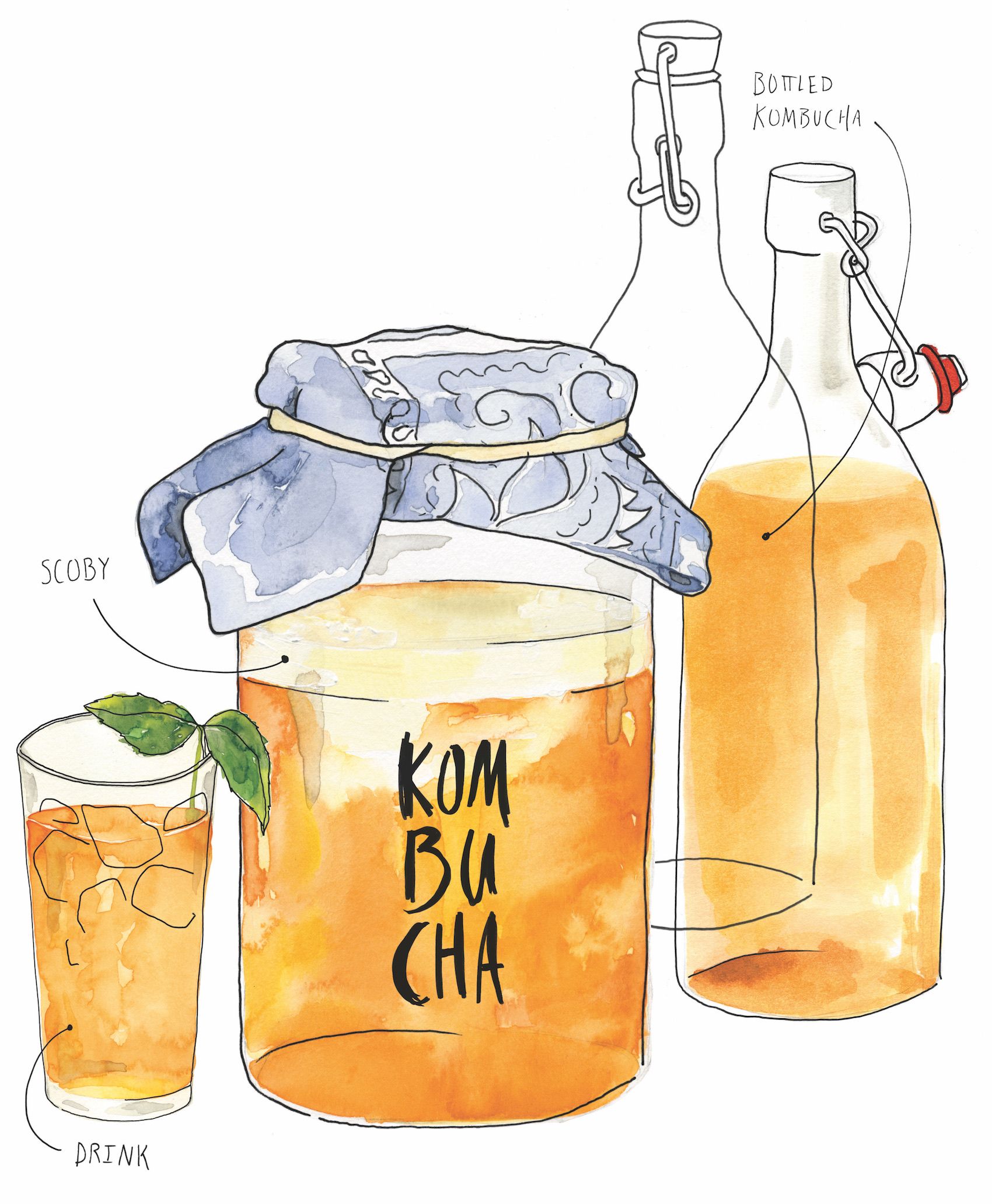Evidence-Backed Kombucha Intro: Become the Change!
Hi Steemians, your Steemit Health Coach here.
I wanted to put up a series of Kombucha 101 which I will back up with evidence from research papers to avoid all the noise that surrounds Kombucha saying their benefits are a myth. Some could be, but most are real.
So what is Kombucha and where did it come from?
There are many assumptions about its origin and it falls under the category of fermented drinks. Keeping the story short, Kombucha is a tonic that people drank to balance the irregularities in the body, and it is most likely to have started in China (the country that started the tea culture, go figure).
So what is in it really?
A) 'the Nute'
The Nute is simply cooled, sweetened tea. Any caffeinated tea (coffee can work too) and any natural form of sweetener can be used. At this point, it's just sugar and tea. Once the Nute is ready, SCOBY will be added.
B) Finished Kombucha
Ferment period depends on many factors, which I will cover in later posts if I see that people are more interested in the technicality of brewing the PERFECT KOMBUCHA. Usually taking about 7 days, the finished Kombucha's composition is completely different from the Nute we started with.
The original amounts of polyphenols (= anti-oxidants) in the tea are broken down, processed and increases in amount after fermentation.
Sugar is used up by the yeast and bacteria to create acetic acid (which gives it that tangy taste) and glucuronic acid. These are organic acids and lowers the pH of the batch to around 3.2~3.6. This low pH can alkalize our body. This is a good thing since our body is usually acidic from digesting a lot of chemicals and meat. The acids itself bring detox effects as well.
Famous probiotics like Lactobacillus and Bifidus are also included in the Kombucha broth.
To avoid listing out all the names, I would like to say that it is basically a cocktail of mixed molecules that can:
- balance your LDL and HDL levels
- help or prevent diabetes through suppressing surges of blood sugar levels
- help digestion by improving pancreas, liver, and kidney function
- relieve constipation
- squelch unhealthy cravings
Kombucha has so much potential because it is easy to brew at home and not one kombucha will be the same. It's kind of like beer in a sense since not one brewery will have the same tasting beer. Kombucha will follow the tracks of the beer industry where thousands of different Kombucha breweries will boast and sell their own unique Kombucha in the future.
Keep an eye out for them Steemians and thanks for dropping by.
Below is the list of research papers which I can provide for you to read if you're interested.
Changes in content of organic acids and tea polyphenols during kombucha tea fermentation
R. Jayabalan a, S. Marimuthu b, K. Swaminathan
Hypoglycemic and antilipidemic properties of kombucha tea in alloxan-induced diabetic rats
Ahmed Aloulou, Khaled Hamden, Dhouha Elloumi, Madiha Bou Ali, Khaoula Hargafi, Bassem Jaouadi,
Fatma Ayadi, Abdelfattah Elfeki and Emna Ammar
Health, Wellness, and Safety Aspects of the Consumption of Kombucha
Mindani I.Watawana, Nilakshi Jayawardena, Charmaine B. Gunawardhana, and Viduranga Y. Waisundara
Sequence-based analysis of the bacterial and fungal compositions of multiple kombucha (tea fungus) samples
Alan J. Marsh, Orla O’Sullivan , Colin Hill, R. Paul Ross, Paul D. Cotter
Picture 1 sourced from thesipmag.com

